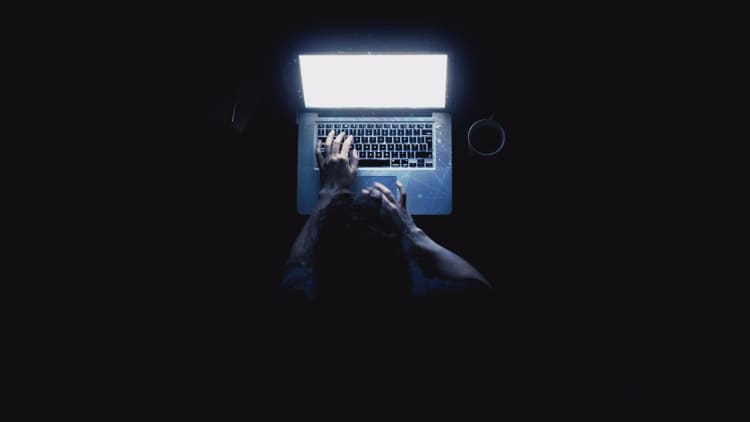Feds seize $3.36 billion in bitcoin, second largest extraction so far
The crypto market has been rough this year, with more than $2 trillion wiped off its value since its peak in November 2021. Cryptocurrencies have been under pressure following the collapse of major exchange FTX.
Jonathan Raa | Nurphoto | Getty Images
The US Department of Justice announced Monday that it seized about $3.36 billion in stolen bitcoin during a previously unannounced 2021 raid on the home of James Zhong.
Zhong pleaded guilty Friday to one count of fraud, which carries a maximum sentence of 20 years in prison.
US authorities seized about 50,676 bitcoins, then valued at over $3.36 billion, from Zhong during a search of his home in Gainesville, Georgia, on November 9, 2021, the DOJ said. It is the DOJ’s second largest financial seizure to date, following the seizure of $3.6 billion in allegedly stolen cryptocurrency linked to the 2016 hack of crypto exchange Bitfinex, which the DOJ announced in February.
According to authorities, Zhong stole bitcoin from the illegal Silk Road marketplace, a dark web forum where drugs and other illegal products were bought and sold with cryptocurrency. Silk Road was launched in 2011, but the Federal Bureau of Investigation shut it down in 2013. Its founder, Ross William Ulbricht, is now serving a life sentence in prison.
“For nearly ten years, the whereabouts of this huge chunk of missing Bitcoin had become a mystery worth over $3.3 billion,” US Attorney Damian Williams said in a press release.
According to the Southern District of New York, Zhong exploited the marketplace’s vulnerabilities to carry out the hack.
Special Agent Tyler Hatcher, of the Internal Revenue Service – Criminal Investigation, said Zhong used a “sophisticated scheme” to steal bitcoin from Silk Road. According to the press release, in September 2012, Zhong created nine fake accounts on Silk Road, funding each with between 200 and 2,000 bitcoins. He then triggered over 140 transactions in quick succession, tricking the marketplace’s withdrawal processing system into releasing approximately 50,000 bitcoins into his accounts. Zhong then transferred the bitcoin to a number of wallet addresses all under his control.

Through blockchain analysis and good old fashioned police work, police and blockchain analytics experts were able to recover more than 50,000 bitcoins from Zhong. They even uncovered crypto stored on a computer buried under blankets in a popcorn box in a bathroom cabinet, according to the press release.
Public records show Zhong was president and CEO of a self-incorporated company, JZ Capital LLC, which he registered in Georgia in 2014. According to his LinkedIn profile, his work focused on “investments and venture capital.”
His profile also says he was a “major early bitcoin investor with extensive knowledge of its inner workings” and that he had software development experience in computer programming languages.
Zhong’s social media profiles include pictures of him on yachts, in front of planes and at high-profile football matches.
But these kinds of hacks didn’t end with the demise of the Silk Road. Crypto platforms continue to be vulnerable to criminals.
In October 2022, Binance, the world’s largest crypto exchange by trading volume, suffered a $570 million hack. The company said a flaw in a smart contract allowed hackers to exploit a cross-chain bridge, the BSC Token Hub. As a result, the hackers withdrew the platform’s original cryptocurrency, called BNB tokens.
In March 2022, another hacker found vulnerabilities in the decentralized finance platform Ronin Network and made off with more than $600 million – the largest hack to date. The private keys, which serve as passwords to protect cryptocurrency funds in wallets, were compromised.
According to a Chainalysis report, $1.9 billion worth of cryptocurrency had been stolen in hacking services through July 2022, compared to just under $1.2 billion at the same time in 2021.


